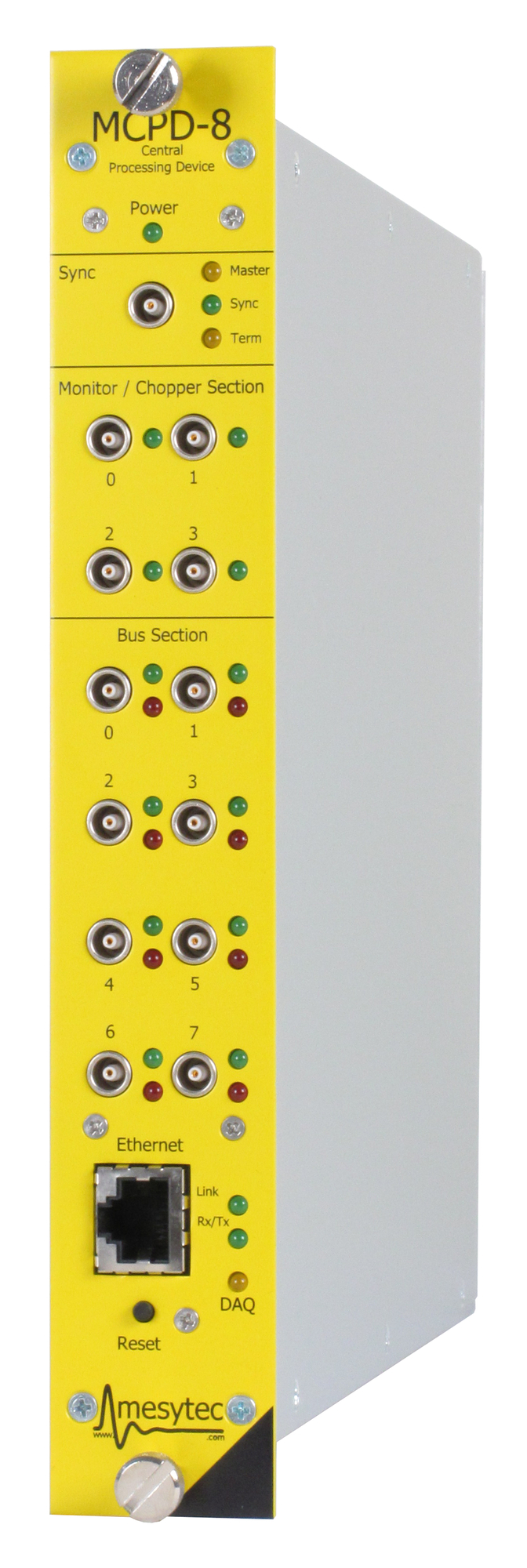
Detector Readout Systems
mesytec MCPD-8 is a module which collects the data
of up to 8 MPSD-8+ or MSTD-16 modules, creates a full
time stamp with
48 bits width, buffers the position amplitude and timing data and sends it via ethernet to a data acquisition PC.
It also transmits the configuration data between control PC and the peripheral modules. There is a communication path via synchronisation line to the other MCPD-8 or MDLL modules in a setup, allowing to synchronise the time stamps between those data collectors, and transmit basic commands like start, stop and run number.
48 bits width, buffers the position amplitude and timing data and sends it via ethernet to a data acquisition PC.
It also transmits the configuration data between control PC and the peripheral modules. There is a communication path via synchronisation line to the other MCPD-8 or MDLL modules in a setup, allowing to synchronise the time stamps between those data collectors, and transmit basic commands like start, stop and run number.
Features
- High rate capability up to 2 mega events/s permanently. No additional dead time up to the rate limit. Bursts with rates up to 6.4 mega events/s can be stored in the main buffer.
- 48 bit time stamp for all events with 100 ns resolution (running 325 days)
- 6 external digital inputs for connection of monitor counters or chopper signals. Can create fully time stamped events of multiple types which are fed to the event data stream.
- 2 voltage inputs digitized by 12 bit ADCs, sample rate max. 100 kHz. Data can be time stamped and sent to the data stream.
- 2 voltage outputs, voltage created by 12 bit DACs. Can be controlled via control PC.
- 2 digital outputs, controlled by PC
- Synchronisation bus, is a Lemo coax connection between several MCPD-8 or MDLL modules. One MCPD-8 module is configured as master module and synchronises all connected modules. Also basic signals like start, stop and a run number is transmitted. The master MCPD-8 itself can be synchronised to an externally applied 10 MHz clock (i.e. chopper time base)
- PC Software: MCPD-8 and MDLL communicate with the control and (if existing separately) data acquisition PCs using a UDP based protocol. The open source data acquisition and control software mesydaq/ qmesydaq, running on Linux OS, is provided for data acquisition, online visualisation and system control.
Documentation and software
- PSD+ system documentation: PSD+ cmd format.
- The official driver library is hosted on github: mesytec-mcpd.
- mesydaq2 GUI (mesytec internal tool): source code , binaries.
- qmesydaq GUI (FRM2 variant of the mesydaq tool): source code , binaries.
Unsupported tools

© 2025 mesytec GmbH & Co. KG